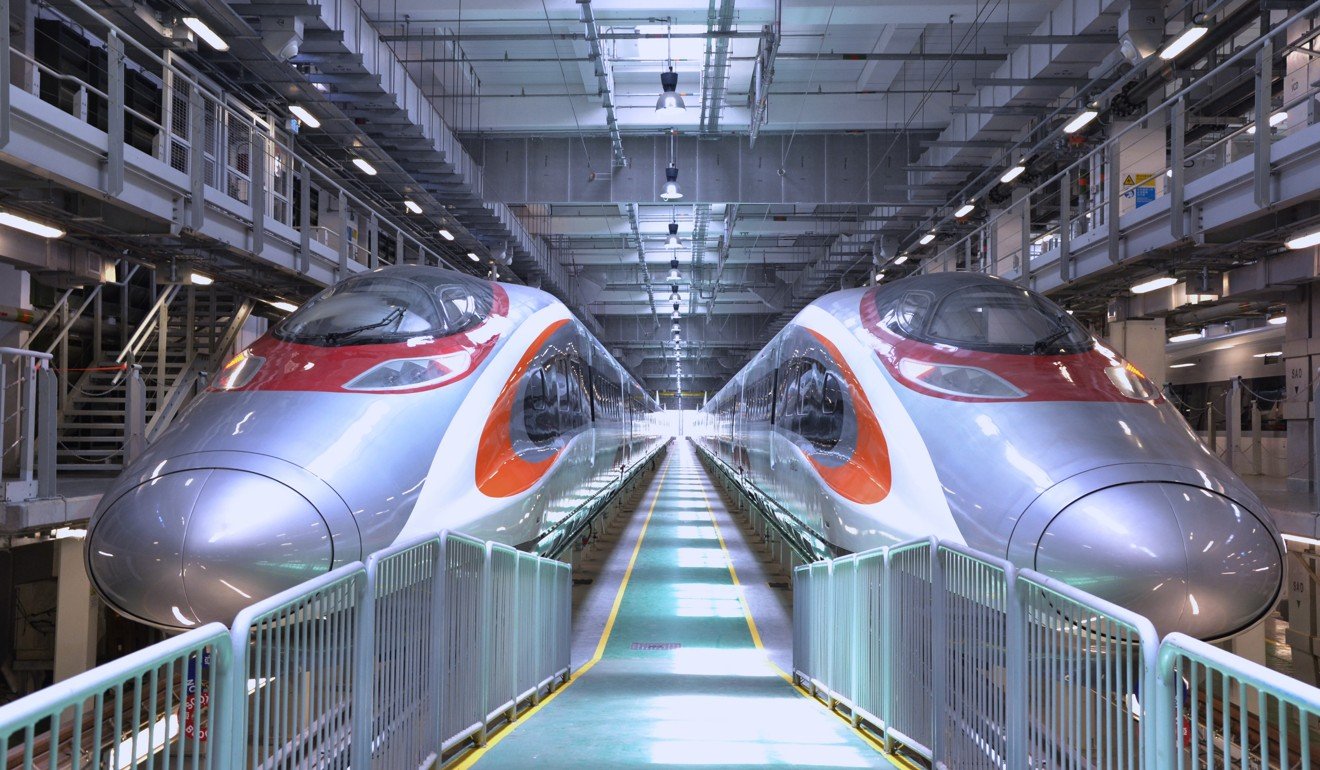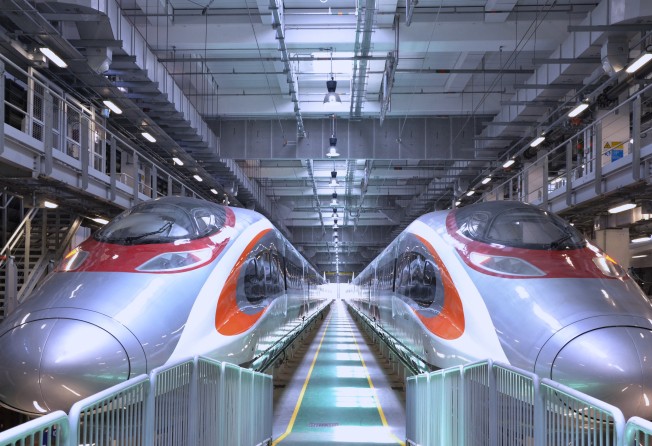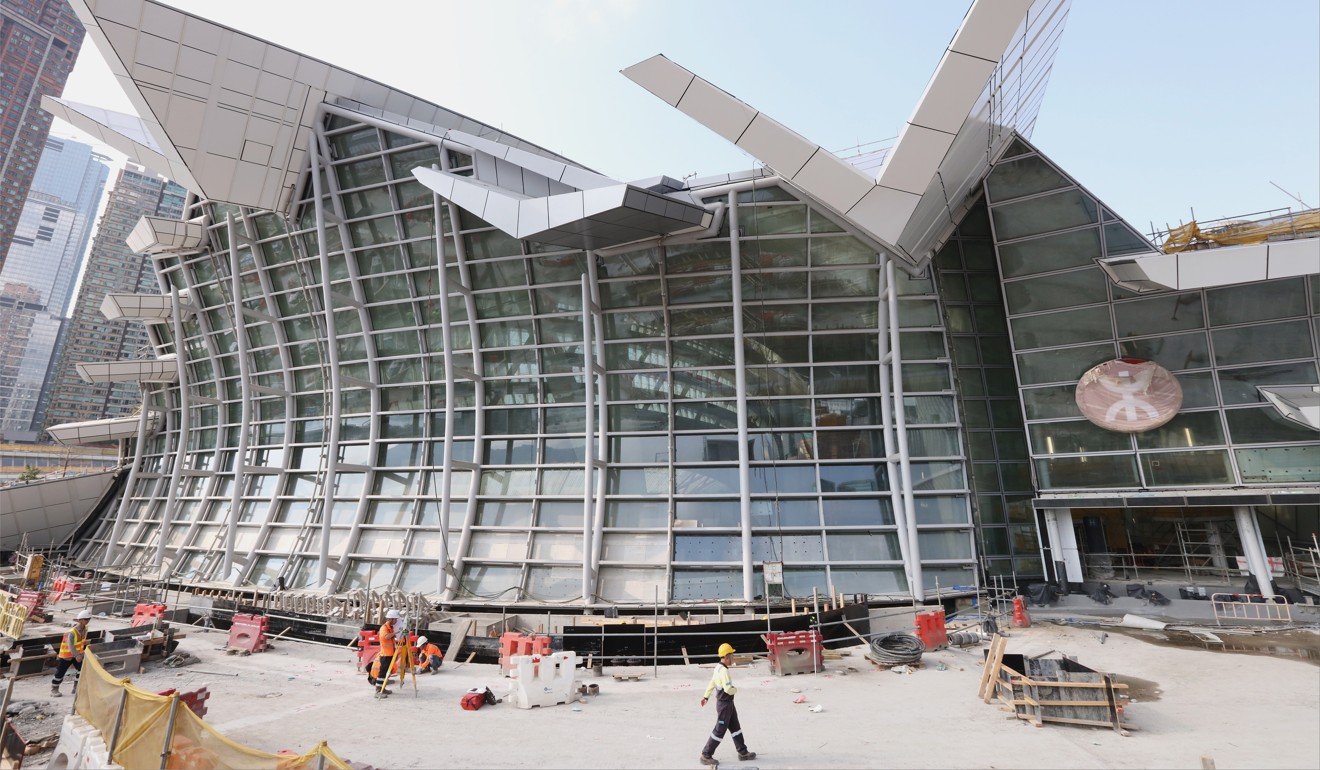
Amending Hong Kong’s mini-constitution for rail checkpoint ‘would open floodgates’
Beijing officials tell local lawyers that applying mainland Chinese laws on Hong Kong soil at rail station for high-speed link will ‘bring least uncertainty’ to city

Beijing officials have fended off calls from lawyers to amend Hong Kong’s mini-constitution to resolve a row about the legality of a joint rail checkpoint, saying doing so would open the floodgates to further revisions.
Meeting a delegation from Hong Kong’s Law Society on Monday, Shen Chunyao said applying mainland Chinese laws on local soil at the West Kowloon terminus for a cross-border rail link would “bring the least uncertainty”, according to a source present.
Shen is the newly appointed head of a committee overseeing the Basic Law, Hong Kong’s de facto constitution.
His deputy, Zhang Rongshun, said the current joint checkpoint proposal was “the best way to preserve Hong Kong’s autonomy”.

However, some of the lawyers told Zhang that the plan’s approval by the National People’s Congress (NPC) Standing Committee, China’s top legislative body, was against the rule of law and arbitrary.
Law Society President Thomas So Shiu-tsung said Zhang responded by saying that the Basic Law was a constitutional document and amendments should not be made lightly.
“If we are amending it because of the ‘co-location’ checkpoint plan, all kinds of people will have various reasons to amend it,” So quoted Zhang as saying. “Any amendment would be opening the floodgates for future changes. And that would affect the stability of it.”
Zhang said Beijing had considered the idea and rejected it.
In effect for over 20 years, the Basic Law has never been amended. Doing so requires a two-thirds majority in favour among Hong Kong delegates to the NPC and local lawmakers, as well as consent from the city’s leader, before a final vote by the NPC.

The Standing Committee passed a resolution in late December to allow mainland police and customs officers to handle immigration procedures at the rail terminal, pending approval by Hong Kong’s legislature. But the city’s legal profession has strong reservations about the constitutionality of the idea, which is seen as against Article 18 of the Basic Law.
So said he understood Zhang’s concerns but also called on Beijing to consider the issue more from the perspective of the common law system practised in Hong Kong.
Local lawmaker Dennis Kwok, who represents the city’s legal sector in the Legislative Council, said amending the Basic Law would be a better way forward.
“It’s a pity they did not consider that in the end,” he said. “With amendments they would not need to twist the clauses as they do right now.”
Kwok reiterated his belief that a bill introduced to Legco for the checkpoint plan contravened the Basic Law.
There is a way to amend such an important constitutional document. But we should not do that lightly
Former chairman of the Bar Association Paul Lam Ting-kwok earlier said the safest way to handle the controversy would be through amendments. He said a provision could be added to make the co-location arrangement an exception to the law.
Such a measure would reassure Hongkongers that it was a one-off proposal, Lam said.
Pro-Beijing lawmaker Priscilla Leung Mei-fun, a legal scholar at City University, said she was personally inclined not to amend the Basic Law.
“There is a way to amend such an important constitutional document. But we should not do that lightly,” Leung said. “It reflects the stability of society in some sense.”
Meanwhile, Shen would not be drawn into the debate on embattled liberal scholar Benny Tai Yiu-ting and his recent remarks on the city seeking independence in a “democratic China”.
Zhang however did comment, admonishing “certain scholars” for bringing up the issue.
China intended to maintain the “one country, two systems” formula under which Hong Kong was governed as a “long-term arrangement”, he said, and it had only been for convenience that it was specified as a 50-year plan when sovereignty over Hong Kong reverted to China in 1997.
Huang acknowledged that in Hong Kong, we have freedom of speech and freedom of expression, but that right is subject to reasonable legal restrictions
He said the future beyond 2047 would have to be discussed, but given the talk of independence in recent years, Beijing would be hesitant to enter the conversation.
However, So said the topic of Tai came up when he met Hong Kong and Macau Affairs Office deputy director Huang Liuquan on Monday.
“Huang acknowledged that in Hong Kong, we have freedom of speech and freedom of expression, but that right is subject to reasonable legal restrictions,” So said.
Both men also discussed China’s political system and So said Huang told him there was no one-party dictatorship but rather, a “multi-party cooperation under the leadership of the Communist Party”.
Pro-Beijing politician Tam Yiu-chung recently sparked controversy when he said Hongkongers calling for an end to “one-party dictatorship” risked being banned from standing in elections.